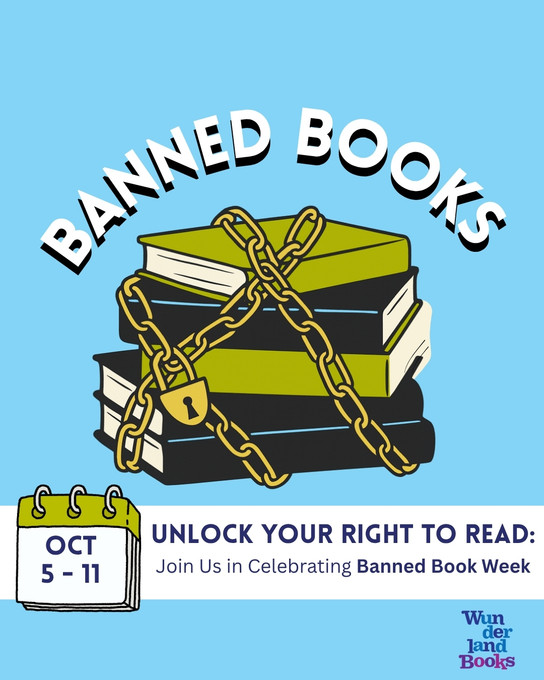
Why Banned Books Matter for Children
Posted by Laura M on Oct 9th 2025
According to the American Library Association, 2,452 titles were challenged in schools and libraries last year. At Wunderland Books, we believe those stories aren’t dangerous. They’re necessary. Every year, books written for children and young adults find themselves on banned or challenged lists. These are stories that some believe should be hidden away, books that deal with tough topics, offer new perspectives, or simply make readers feel something different. At Wunderland Books, we believe these books are essential.
Understanding why books are banned starts with looking at the concerns that often spark controversy, whether it’s sensitive topics, challenging ideas, or characters who defy expectations. Books are often banned or challenged because they make people uncomfortable by addressing issues that are seen as controversial or difficult. Stories that explore tough topics, use strong language, or depict violence and scary themes are frequently targeted. Books that touch on religion, politics, or history can be silenced for presenting perspectives that don’t align with certain beliefs. Others are banned for showcasing LGBTQ+ or diverse voices, featuring strong female leads, or introducing characters who break the rules. Sometimes, the fear is less about what’s on the page and more about the influence those words might have on readers. Ultimately, book banning reveals more about the fears of society than about the books themselves.
Stories Are Mirrors and Windows
Children need books that reflect their own lives back to them, and books that let them see into the lives of others. Banning a book removes that chance. A child may miss out on the comfort of seeing a character who looks like them, feels like them, or faces similar challenges. Another child may lose the opportunity to learn empathy by stepping into someone else’s shoes.
Protecting Childhood Doesn’t Mean Protecting from Reality
Censorship is often framed as protection. But shielding children from the realities of the world does not make those realities disappear; it simply makes children less prepared to face them. Books give children a safe space to encounter big ideas, ask questions, and learn to think critically.
Curiosity Builds Courage
When a book is banned, it often signals that it touches on something important, like identity, history, fairness, and justice. Children are naturally curious, and when we give them space to explore these ideas, they grow braver, more thoughtful, and more resilient. Silencing stories tells them that their questions are dangerous. Sharing stories tells them their questions matter.
Freedom to Read Is Freedom to Think
Censorship narrows imagination and limits growth. A wide range of stories from funny, sad, challenging, to magical, nurtures creativity and independence. The freedom to read is the freedom to think for oneself, and that is a gift every child deserves.
Our Belief at Wunderland Books
We don’t believe in hiding books away. We believe in guiding children toward stories that inspire, challenge, and expand their world. The books that spark the most conversation are often the ones that matter most. By celebrating banned books, we celebrate children’s right to read, to wonder, and to grow.
You can read our collection of banned books by visiting the following link: Explore Banned Books at Wunderland Books.
